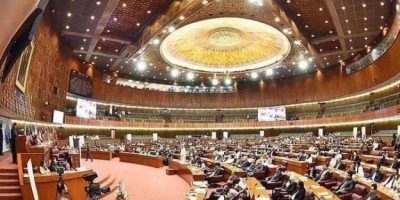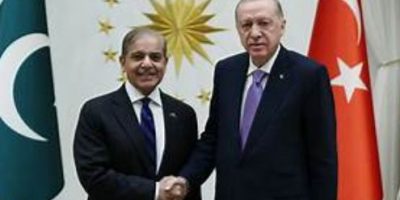UNDP Resident Rep. urges collective action for addressing global challenges

ISLAMABAD, JUL 30 (DNA) — Dr Samuel Rizk, the UNDP Resident Representative in Pakistan, emphasized global solidarity and collective action to tackle shared global, regional and national development challenges such as inequality, pandemics and climate change.
He urged policymakers to prioritize education, health, economic empowerment, institutional accountability, and resilience to climate-change for individual and collective well-being. He was speaking at the Institute of Regional Studies (IRS) here on Monday.
“When we look at the current state of global affairs, we see a set of interlinked global problems that no country is immune to. However, the spirit of cooperation to address these global, systemic problems, which used to exist, has been weakened by polarization and fractured multilateralism,” said Dr Rizk.
He highlighted the widening gap between very high human development index (HDI) countries and low HDI countries. He added that after factoring in inequality and fairness dimensions, South Asia’s loss in the HDI due to inequality was among the highest in the world, after sub-Saharan Africa. Yet, at the same time, much thinking and policymaking on human development actually originates in the South Asian region – be it Mahbub-ul-Haq or Amartya Sen.
Dr Rizk further shared that despite making progress on certain counts, Pakistan had fallen from medium human development in 2020-21 to low level of human development in 2023-2024, ranking 164th out of 193 countries – a score also low by the sub-region’s ranking He shared that, according to UNDP’s 2020 National Human Development Report on Inequality, the richest 20 per cent of Pakistanis had almost five times the income of the poorest 20 per cent.
Despite being 48 percent of the population, women’s inclusion remained in the social, political, and economic domains in Pakistan remains low, and 22 million school-age children were out of school. With 64 per cent of Pakistan’s population below the age of 30, Dr Rizk called for “targeted investments in education, employment, and engagement for reimagining this youth bulge – that some consider a liability – into an asset.”
For Pakistan, 2022-2024 have been characterized by multidimensional, concurrent challenges including the 2022 floods, macroeconomic stability, political transition, and regional geostrategic developments. The mid- to long-term impact of these challenges and external shocks continue to take their toll on Pakistan’s most vulnerable groups.
Dr Rizk called for investments into human capital, economic stability and predictability (especially for the poorest segments), as well as horizontal and vertical trust as a foundation for effective policy and development action.Building on the newly-released National Human Development Report for Pakistan 2024 on Digital Transformation, he urged Pakistanis to take advantage of the increasing digitalization to promote more inclusion, equity, and socioeconomic transformation.
To sum up, he underscored the importance of pursuing and maintaining a development course of action that is people-centered and institutions-based development action to achieve human security, equality and prosperity.
President IRS Ambassador Jauhar Saleem remarked that human security entailed freedom from fear, freedom from want, and freedom to live in dignity, while human development was about promoting long and healthy lives, providing access to knowledge; and ensuring a decent standard of living for all.
He underscored that the progress of South Asian countries towards achieving the UN’s Sustainable Development Goals was slightly lower than the global average. He added that the low score of Pakistan was because of obstacles across all areas of the SDGs, including education, health, and economic stability. — DNA
Related News

PM invites lawmakers, party chiefs for in-camera briefing on regional conflict
ISLAMABAD, MAR 3: Prime Minister Shahbaz Sharif has invited parliamentary leaders and heads of politicalRead More

Türkiye, Pakistan join forces for Middle East peace
ISLAMABAD, MAR 3 /DNA/ – In a high-stakes telephone conversation tonight, Prime Minister Shehbaz SharifRead More


Comments are Closed